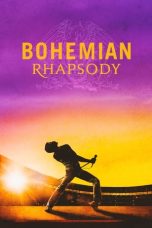- 1
- 2
- Source: Haruki Murakami and the Music of Words
- Haruki Murakami
- Hard-Boiled Wonderland and the End of the World
- Dance Dance Dance (novel)
- Underground (novel)
- Jay Rubin
- Richard Brautigan
- Suzume
- Bildungsroman
- Haruki Murakami and the Music of Words
- Haruki Murakami
- Hard-Boiled Wonderland and the End of the World
- Underground (Murakami book)
- Dance Dance Dance (novel)
- Jay Rubin
- The 1963/1982 Girl from Ipanema
- Dances with Sheep
- After the Quake
- Men Without Women (Murakami short story collection)
Nightmare Alley (2021)
The Last Redemption (2024)
Doraemon the Movie: Nobita’s Earth Symphony (2024)
Sugar Daddy (2021)
My Freaky Family (2024)
Unsung Hero (2024)
Radio Free Albemuth (2010)
Hannah Waddingham: Home for Christmas (2023)
A Clockwork Orange (1971)
The Puppet Asylum (2023)
Trolls Band Together (2023)
What If? (2023)
No More Posts Available.
No more pages to load.
Haruki Murakami and the Music of Words is a non-fiction book by Jay Rubin, published by Harvill Press in 2002.
The book discusses Haruki Murakami.
The book includes some original essays written by Rubin along with some existing works by Murakami, including some entire stories and some excerpts of such. It also includes a biography of Murakami. Steffen Hantke of Sogang University described it as an "attempt to provide its readers with everything but the kitchen sink." Hantke described the book at the time as "the most comprehensive single work of scholarship on" Murakami.
It argues against the idea that Murakami's novels had little value.
Ann Sherif of Oberlin College wrote that Rubin was "frank" in his appraisals of Murakami's literature.
Background
Rubin had been the most frequent person to translate Murakami's books, and also is friends with Murakami.
Content
Brian Keeley of the Far Eastern Economic Review stated that the details present in the biographical information were "some significant, too many trivial".
"Translating Murakami" is in Appendix A and describes how Murakami's works are translated. The bibliography is at the end of the book and lists works in English and Japanese. Hantke stated that the bibliography "functions as a list of suggestions for further reading."
Reception
Hantke stated that the book was important as a means of collecting critical information on Murakami in a single work, even though, in his view, the book covers little new information, because at the time the critical reviews of Murakami were scattered across multiple sources, and that was especially the case for information written in English.
Keeley stated that the content was "often interesting stuff", and he praised the "useful insights". He felt Rubin at times was "a little too keen, a little too gushing."
Sherif stated that the work has "much critical acumen". Sherif praised Appendix A for having "interesting insights".
References
Hantke, Steffen (2003). "Haruki Murakami and the Music of Words". Modern Fiction Studies. 49 (4): 886–888. doi:10.1353/mfs.2003.0069. - Also at ProQuest
Keeley, Brian (2002). "Shaken and Stirred". Far Eastern Economic Review. 165 (48): 70. ProQuest 208233252 – via ProQuest.
Sherif, Ann (2003). "Haruki Murakami and the Music of Words / Dances with Sheep: The Quest for Identity in the Fiction of Murakami Haruki". The Journal of Japanese Studies. 29 (2): 368–372. JSTOR 25064410.
= Notes
=Further reading
Chong, Kevin (December 2002). "The evolving Murakami [Haruki Murakami and the Music of Words], [After the Quake]". Books in Canada. Vol. 31, no. 9. p. 13.
Dean, Kitty Chen (2002). "Haruki Murakami and the Music of Words". Library Journal. 127 (12): 81.





























